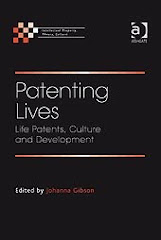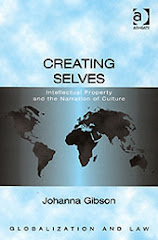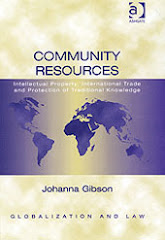 Except when inundated with repeated stories about medal hauls, it would have been difficult to miss Prince Charles's comments on the GM agriculture debate in the news today.
Except when inundated with repeated stories about medal hauls, it would have been difficult to miss Prince Charles's comments on the GM agriculture debate in the news today.In an interview with the Daily Telegraph, Prince Charles criticised the terms of the debate: "What we should be talking about is food security, not food production - that is what matters and that is what people will not understand."
Although branded a Luddite by Des Turner, Labour MP and member of the Commons science committee, can this statement really be dismissed out-of-hand? Des Turner stated in the same article: "In some developing countries, where for instance there is a problem with drought or salinity, if you can develop salt or drought-resistant crops there are great benefits." But is it really clear that the transfer of GM technology to this part of the world has really been this efficient or philanthropic? Or is this just the query of a troubled misanthrope?
Far be it from me, an Australian, to unpick a statement of the UK's leading republicanism campaign group, but Republic is reported by the BBC as saying "Prince Charles is quickly making his position as heir to the throne untenable with his meddling in politics." So it's accepted that GM is a political debate, not just one over the grocery trolley?
Perhaps providing greater insight into the issues of the UK debate are the farmers themselves. In an interview broadcast by the BBC today, Michael Hart of the Small and Family Farmers' Alliance set out the real terms of the problem. He explained that when purchasing GM seed, farmers must agree to purchase the "related" products as well, including pesticides, fertiliser and so on. And of course, contrary to 1000s of years in farming traditions around the world, farmers cannot ordinarily save seed from their crops because to do so would usually infringe any patent or plant variety right on the seed they have purchased (because it amounts to keeping a protected product outside the terms of the licence).
Apart from the obvious concern with the obstacles presented by intellectual property rights to traditional farming methods, what should also be considered are the competition concerns with what sounds like licences that are "bundling" products. Bundling is where a company, which is found to be in a dominant position in the market, sells two or more products together as a bundle, charging more for the bundle than for the component parts. Assuming that the seed is not incompatible with every other fertiliser and pesticide on the market, then if a seed company is shown to be dominant within the market, it may well be acting anti-competitively because it causes customers to purchase seeds and related products as a "bundle" from that company only. As Michael Hart put it, it's the "package deal" that is the problem.
The Luddites rioted against the changes of industrialisation when machines threatened their employment and owners could replace artisans with unskilled labour. Today, loss of tradi tional skills and diversity of knowledge in trades is being lamented. This is not to say that industrialisation was a negative and undesirable process, but the debate is far more complex than a mere comedy in technophobia. The technology perhaps requires some diversity and innovation from all participants and potential beneficiaries in the way in which it is introduced and managed.
tional skills and diversity of knowledge in trades is being lamented. This is not to say that industrialisation was a negative and undesirable process, but the debate is far more complex than a mere comedy in technophobia. The technology perhaps requires some diversity and innovation from all participants and potential beneficiaries in the way in which it is introduced and managed.
 tional skills and diversity of knowledge in trades is being lamented. This is not to say that industrialisation was a negative and undesirable process, but the debate is far more complex than a mere comedy in technophobia. The technology perhaps requires some diversity and innovation from all participants and potential beneficiaries in the way in which it is introduced and managed.
tional skills and diversity of knowledge in trades is being lamented. This is not to say that industrialisation was a negative and undesirable process, but the debate is far more complex than a mere comedy in technophobia. The technology perhaps requires some diversity and innovation from all participants and potential beneficiaries in the way in which it is introduced and managed.In principle, were the Luddites really far wrong?



No comments:
Post a Comment